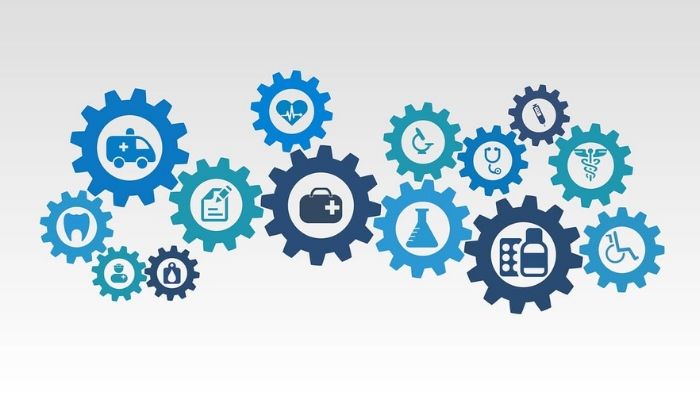6 Habits of Highly Successful Patients
NOVEMBER 6, 2018 by DR. HEATHER MODAY, MD
There are certain mindsets and attitudes that people must possess to get the best outcomes in their health. Nowhere is this more obvious than in the world of functional medicine.
For the most part, people who seek out functional medicine are open-minded and looking for an alternative from their current experience in medicine. Often they have been frustrated by their experience, and they see their health as their number one priority.
They will go above and beyond to improve their health in regards to changing habits, investing financially and communicating regularly. They have done some research and feel that this approach is aligned with what they believe. They are genuinely motivated to change and improve their life. All of this puts them on the best possible track to success.
However, some remain stuck in the “pill for an ill” mentality and hope that there is some magic bullet to cure them of all their ills. They want this without having to change much else in their busy lifestyle. Unfortunately, this never works, and we have seen this time and time again. From our experience over the years, we know the qualities and attitudes that individuals must possess to be successful. Here are some of them
- Don’t take advice from Dr. Google or other online health “gurus”.
I understand that it’s completely impossible to ignore the onslaught of medical and nutrition advice found online. Over 80% of Americans query the internet for health advice. There are some very reliable sources for general health and nutrition information, which can be valuable. However, for every valid shred of truth, there is just as much inaccurate, biased, sometimes frankly erroneous information out there. Anyone with a website or social media account can label themselves as an expert even if they have little to no background or knowledge. If they are a celebrity – even better! Millions of us fall for it.
It’s easy to get sucked into the marketing funnels and webinars, which promise immediate gratification and perfect health on the other end. Again, I am not saying that all of what is out there is bad, but you need to be wary of charlatans. Although you may not get harmed in the end, you are better off spending your money elsewhere.
- Not all health advice applies to you.
We, humans, are like snowflakes. Not one of us is entirely alike. Not only is our genetic material (DNA) all varied, but our health is also completely different depending on our habits and environment.
For example, a nutrition plan that works for a sedentary 66-year-old male, ex-smoker with diabetes, but low stress may not work as well for a 36-year-old, sleep deprived mom with thyroid issues. However, the way health and nutrition advice is doled out, it would seem there is a one-size fits all cure for everyone. It’s whatever is the most recent health fad: the ketogenic diet, veganism, bulletproof coffee, removing all foods with lectins in them… and the list goes on. Not to say these interventions don’t have some validity. They do. Just not for everyone. As I said, we are snowflakes, and when we try to apply some blanket nutritional or medical plan to our bodies when we don’t actually know what is going on inside, the results can be lackluster or even disastrous. The blind adherence to a restrictive diet plan or any health regimen that is antithetical to your actual needs can often cause more harm than good.
- Don’t be a “know-it-all.”
This may seem like harsh advice, but it’s one of the things that really prevents people from getting the help they need. Statements such as, “I know I have X disease (usually because it’s been self-diagnosed, or their best friend has it) and I’ve done a lot of reading on my own, so I know what I need. Or, “I just want to make sure that you will order Y test (that I read about on some blog) and will treat me with the Z protocol” (which I read about in some New York Times bestselling book).
You see, this person is coming into the process with blinders on. He or she has already decided that, despite no training or expertise, they know exactly what they need. That reading blogs and books and listening to podcasts has made them qualified to treat themselves (bringing us back to point #1). They will often disregard fact-based advice because it is not in line with deeply ingrained beliefs that they picked up from friends, family or the internet. They may have hung their hat on a diagnosis and cling to it, even if it’s wrong.
I get it, many people are frustrated. Maybe they’ve been to multiple conventional medicine specialists (or even “alternative” practitioners) who haven’t given them any answers except a stack of prescriptions or a bag of herbs. They have lost trust and patience; however, it’s necessary to suspend any preconceived notions to get the correct care.
In a genuinely comprehensive functional medicine practice, everyone is a blank slate. There are no cookie cutter protocols. There is no focus on a diagnosis. Every person is seen as a complex system that is out of balance because of environmental influences. All of these factors like sleep, stress, toxins, nutrition, have to be brought back into balance.
We know how to do this because we are certified functional medicine experts with years of training and experience, who have helped people find their way back to health.
Which brings me to my next point…
- Trust the process and be patient with yourself.
Starting a functional medicine program chomping at the bit is common. Years of frustration and not feeling well can make anyone want things to be better instantly. This is common. I always tell every patient, they didn’t get sick overnight. Imbalances and diseases start years prior to symptoms. Many people have suffered for a while, so I understand the desire to want immediate results, but you have to have a little patience.
Often this is the first time people have had a 360 approach to their health, in-depth testing, and nutrition specifically tailored to them. Even so, the body heals at its own rate, and if you’ve been sick for a long time, it may take awhile. The important thing is to trust your practitioner and ask questions. Be kind to yourself and know that body has an amazing capacity to heal – just at its own pace. There is no magic fairy dust.
- Be honest.
People are often surprised at the questions we ask on our intake questionnaire, as it’s quite extensive. We also get an extensive food diary on everyone we see. This information is crucial in helping us design a program for someone. It’s not to use against them. So, if you regularly binge Ben and Jerry’s ice cream when you are stressed, stay up until 1 a.m. watching YouTube or have secretly been smoking for the past 10 years we need to know. It’s ok. We need to know about your relationships and your emotional state. Do you hate your job? Were you abused as a child?
We need to know all of this because this stuff is what shapes and affects us as humans, especially when it comes to our physical and emotional health.
- Be willing to change.
This is possibly the most important one. Change is hard. Habits are habits because we repeat them over and over. Habits are hardwired in our brain so they become knee-jerk reactions to situations. They can be good or bad. They can even become addictions. Bad habits such binging on junk food, excessive shopping, or avoiding exercise can be replaced with newer choices. This can be hard and it takes some focus and energy. Choices like waking up early to exercise, taking time to prepare food instead of ordering take-out, or taking a hot bath and meditating instead of having that cigarette are all do-able. Habits are the results of choices, but we often choose the road of least resistance. You have to make a pact that you are going to do something and then stick with it, even if it’s really hard in the moment. In the end, if you practice a new thing over and over, it becomes your new habit, kicking out the old one. The beneficial outcomes such as weight loss, boundless energy, better mood, reinforces this new habit. Before you know it, you have changed for good.
The most important message here is to understand that you are charge of our own health. You are the designer of your life, and the choices you make impact your health more than anything else. Take this opportunity to grab the reins and get back in charge of becoming the healthiest person you can be.





